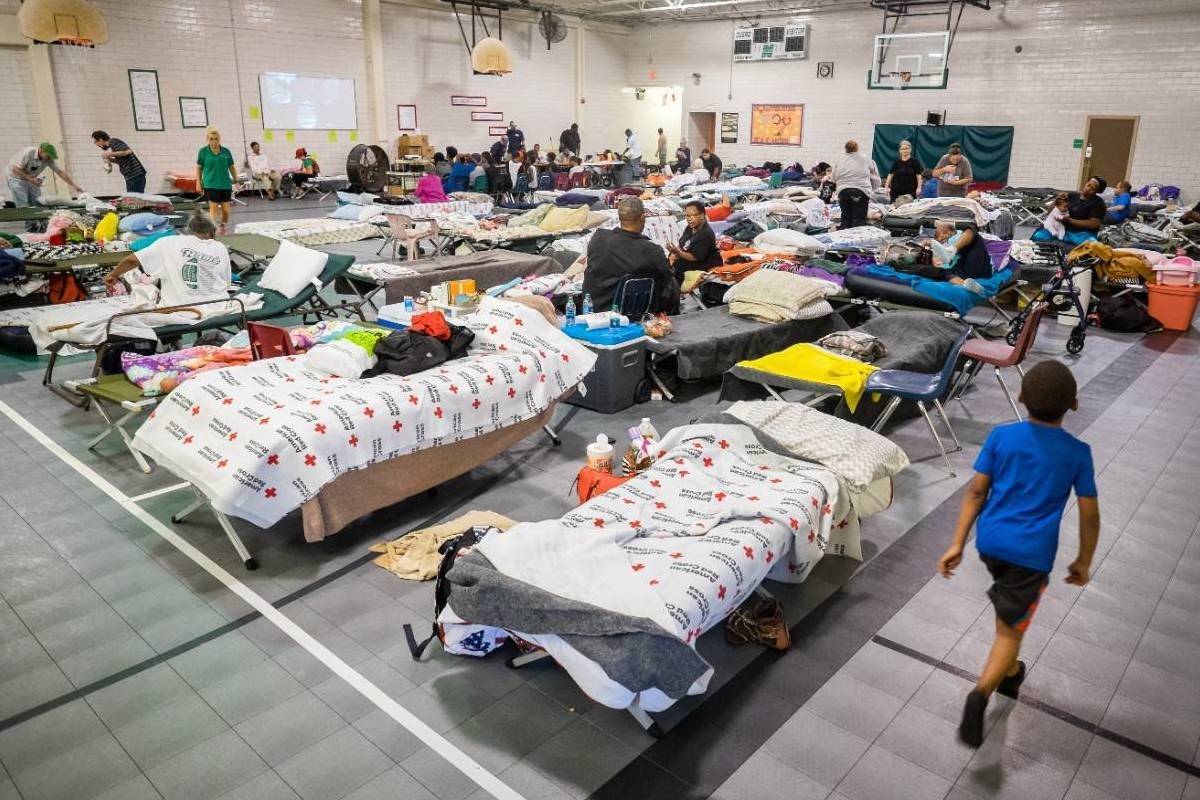
New disaster planning issues loom ahead of the 2020 Hurricane Season. Mitigation efforts to stop the spread of coronavirus continue while authorities ponder sending people back to work. How will state or Federal agencies and organizations like the Red Cross provide emergency shelter for large numbers of people during a disaster?
A tornado outbreak over the Easter weekend posed new problems to local governments. The weekend storms took lives, destroyed homes, and left families seeking temporary shelter. Coronavirus mitigation efforts, including social distancing, worked in opposition to available shelter alternatives and further limited options to displaced residents.
After the tornado outbreak, some shelters passed out face masks. Others did not open. The CDC continues to state that face masks may help confine the disease to the person wearing the mask, but do not protect the wearer from others with the virus. An N95 mask requires the proper size and fit to protect against airborne viral contaminants. The value of homemade masks is an ongoing debate.
In Monroe, Louisiana, the outbreak destroyed about 300 homes. The city scrambled to secure 200 hotel rooms for people displaced by the storms. Most shelters house large numbers of people in one place. Open-space shelters like gymnasiums that house dozens or hundreds of people could result in a new coronavirus outbreak. Louisiana is one of the pandemic hotspots in the United States with over 21,000 confirmed cases of COVID-19 and close to 900 deaths from the disease as of April 13th.
Images of shelters present a terrifying scenario. One or two people carrying the disease without symptoms could infect hundreds of others. Confined environments like cruise ships present a high-risk environment for spreading the virus. The same risk could extend to disaster shelters and hotels used as shelters without the right precautions.
Six weeks from now, the June first start of the hurricane season could magnify the problems faced by shelters and mitigation controls like social distancing. As hurricanes approach the United States Coast, local authorities may issue evacuation orders. People will leave their homes and seek local shelters. Others move inland away from the hurricane to hotels or the homes of families and friends.
Shelter risks may prompt some individuals to stay home instead of evacuating. Others will join hundreds to thousands at shelters or seek inland hotels—an option not much better than passengers faced on the cruise ships. The idea of self-isolating a family of four in a hotel room sounds more like a prison sentence. How will open-space shelters enforce social distancing measures?
Colorado State University Tropical Meteorology Project publishes hurricane season outlooks in December and April, well ahead of the upcoming season. The 2020 reports indicate an above average season that includes eight hurricanes and four major hurricanes. A 69 percent chance exists for a major hurricane to make landfall along the U.S. Atlantic and Gulf Coasts.
Any landfalling hurricane or tropical storm has the potential to displace hundreds to thousands of residents. Tropical storms and hurricanes cause widespread flooding and power outages that can last weeks. Entire communities devastated for months and years to come.
In the new age of social distancing, limited options for shelter ahead of and following a disaster may leave some without a place to go. Local, state, and Federal agencies must plan for a disaster with mitigation strategies that minimize the risk of creating a new COVID-19 outbreak.
The Coronavirus Pandemic is a disaster of global proportions that caught most people in the United States and throughout the world unprepared. Everyone should Plan and Prepare for a Disaster before the next hurricane, tornado, or pandemic strikes their home, community, or the United States. In the new Coronavirus pandemic reality, relying on your own stores of food and supplies, a well-prepared shelter, and a source of electric power may prove the most viable option available.
Norwall PowerSystems specializes in the sale of emergency backup generators and power equipment. They stock 1000s of generators in U.S. warehouses for immediate shipment throughout the country.























